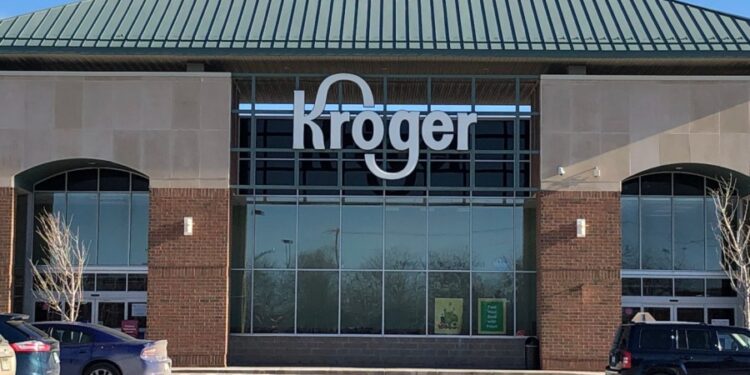
A federal judge on Tuesday blocked the proposed $25 billion merger of grocery giants Kroger and Albertsons, ruling that the deal would limit competition and harm consumers but leaving the door open to a future attempt.
Albertsons announced its intent to merge with Kroger in 2022 for $24.6 billion. Their combined geographic forces would create a large national footprint and allow them to compete against mass retailers such as Walmart, Amazon and Costco, the stores argued.
In February 2024, the Federal Trade Commission (FTC) and nine attorneys general sued to block the merger, arguing that the “largest proposed supermarket merger in U.S. history” could hurt competition and workers and result in higher prices.
FTC spokesperson Douglas Farrar called the decision a “statement win.”
“Today’s win protects competition in the grocery market, which will prevent prices from rising even more. This statement win makes it clear that strong, reality-based antitrust enforcement delivers real results for consumers, workers, and small businesses,” Farrar said in a statement to The Hill.
Arizona Attorney General Kris Mayes, one of the plaintiffs, called the decision “a major victory for consumers, workers, and small businesses across the country.”
“Had this merger gone forward, it could have harmed families by reducing choices, driving up prices, and eliminating jobs. Here in Arizona, where countless communities rely on accessible, affordable grocery options, this decision helps ensure that residents won’t face the potentially devastating impacts of such a consolidation,” Mayes said.
The Hill has contacted Albertsons and Kroger for comment on the verdict.
A spokesperson for Albertsons previously told The Hill that if “the Federal Trade Commission is successful in blocking this merger, it would be hurting customers and helping strengthen larger, multi-channel retailers such as Amazon, Walmart and Costco – the very companies the FTC claims to be reining in – by allowing them to continue increasing their growing dominance of the grocery industry.”
The federal judge who issued the injunction left the door open for a future merger, but called the proposed deal “premature.”
“Although defendants may choose to abandon the merger because of the preliminary injunction, this order in no way forces them to do so, and leaves open the possibility that they may pursue the merger at a later date should it be deemed lawful in the administrative proceedings,” wrote Judge Adrienne Nelson of the U.S. District Court in Oregon.
“An injunction simply pauses the merger. Any harms defendants experience as a result of the injunction do not overcome the strong public interest in the enforcement of antitrust law, especially given the difficulty in disentangling a premature merger.”
Updated at 4:33 p.m. ET.







